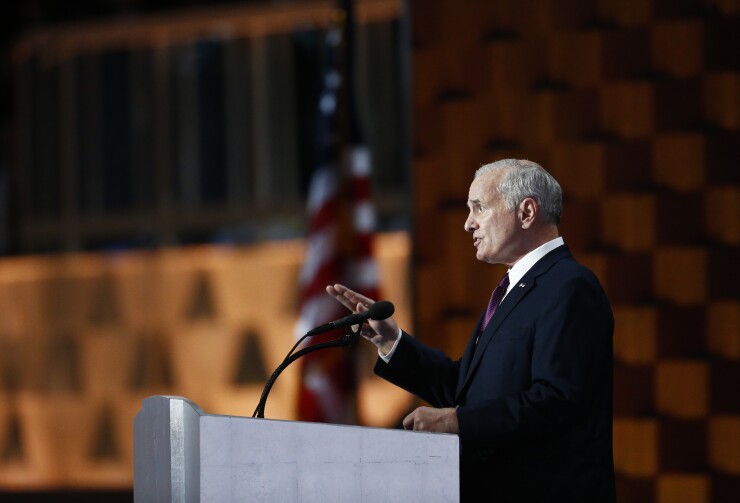CHICAGO – Minnesota’s legislative appropriation – including funds that cover lease payments on a small piece of state-backed bonds – is up in the air and headed to mediation following a Minnesota Supreme Court ruling.
The
“The particular circumstances here, where the legislature adjourned before its appropriation became law, the governor vetoed the legislature’s appropriation, and the two branches have remained at an impasse since then, raise doubts about the continuing functioning of the legislature branch,” the court wrote. “The other branches should resolve these doubts through the political process.”

S&P Global Ratings analyst Eden Perry said analysts were reviewing the order. The rating agency previously had the state’s rating on watch with negative implications over the issue because it entangled repayment of $80 million of certificates of participation issued in 2014 to fund a Senate office building. Under a temporary funding agreement, lease payments have continued to be made and funds are on hand to cover a December payment but it’s unclear how the ruling impacts upcoming bond payments.
Dayton signed the $46 billion two-year budget package to avert a government shutdown but issued a line-item veto of the legislature’s $82 million appropriation in an effort to force the GOP back to the negotiating table over the size and nature of $650 million in tax relief he believes the state can’t afford.
The move raised concerns over whether the lease payment needed for debt service on the Senate’s office building debt would be made after Senate leaders said they would use funds on hand to cover operating expenses rather than the lease payments to cover December debt service. That prompted S&P to put the state’s AA-plus general obligation rating on CreditWatch.
Dayton, a member of the state’s Democratic-Farmer-Labor Party, and GOP lawmakers agreed to and the Ramsey Court Circuit Court approved a temporary funding measure that expires Oct. 1. The order required the Senate to make its June 2017 payment for the Senate building, and to continue paying the lease payments during the appeal period as the parties sought to insulate the lease payments from the legal dispute.
The lease rental payments were to be made through the appeal period to cover the COPs and the lower court said the Senate is permitted to use its reserve funds to make the lease payments after the order expires.
“In our view, the court order gives the state time to work out its political differences and solve its budgetary issues before the June 1 debt service payment; however, we will continue to monitor the process,” S&P wrote in late June when it removed the state from watch.
But the high court in its opinion raised questions on the legality of the overall legislative funding agreement, saying it knows of no existing authority that allows the judiciary to allow non-budgeted funding to continue simply because it’s asked to do so by the parties – in this case the governor and GOP leaders.
“In fact, our cases suggest that the judicial branch does not have the inherent power to appropriate money,” the court wrote.
The court ordered the parties in “good-faith negotiations” led by a mediator. The parties must name a mediator by Tuesday and provide an update to the court on the negotiations Sept. 29. By Sept. 15, the parties must submit a defense of the judiciary ordering legislative funding without an appropriation.
Dayton said he was pleased with the court’s ruling and order to participate in mediation. “I remain ready and very willing to engage in those negotiations immediately. I have asked my legal team to contact their legislative counterparts to begin to resolve this matter,” Dayton said in a statement.
Fitch Ratings rates the state AAA and Moody’s Investors Service has the state at Aa1. Neither raised concerns over the appropriation issue saying the state had time to resolve any questions with the next payment not due until late this year.
The state has the option to fund COP debt service from either the Department of Administration's budget or the Senate's budget, Fitch said in a summer report.
The state is planning its annual GO issue later this month. Minnesota Management and Budget Assistant Commissioner Jennifer Hassemer said the timing of the sale was not impacted by the budget veto and her office is reviewing the court’s opinion.
“Our decision to hold a bond sale is determined by market conditions, and based on that information we are contemplating a competitive sale later this month. As for the Supreme Court’s ruling that came out Friday afternoon, lawyers for the Governor's Office and the Legislature have been in communication. We are in the process of reviewing the order with our lawyers and are working to ensure we comply with all requirements of the decision. We will have more information in the coming days surrounding mediation and next steps,” she said in statement.





